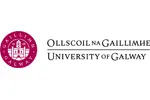

| The award | How you will study | Study duration | Course start | Domestic course fees | International course fees |
|---|---|---|---|---|---|
| MA | Full-time | 1 year | September | find out | find out |
Watch course video presentation here.
This master's programme enables you to develop a sophisticated understanding of the challenges of interpreting the past. Specialists in modern, early modern and medieval history introduce you to a range of historical sources, reflecting on their uses and limitations. You will learn to evaluate ways in which historians, politicians and the media interpret the past. You will develop research and analytical skills, using the techniques of the history profession to present your findings.
Students may take the programme on a full-time [one year] or part-time [two year] basis. Part-time students take the programme over a two-year period, completing their research dissertation in Year Two. Some of the taught modules will be available in the evening.
Students will acquire graduate employment skills, including written and oral communication skills, analytical skills, and problem-solving skills.
On successful completion of this programme students will be able to:
1. Understand the mentalities of people in other historical periods.
2. Write and speak critically about the nature of historical change.
3. Use a wide range of historical source material-from estate rolls and depositions to newspapers and oral evidence.
4. Convey a critical awareness of the relationship between current events and political, social, economic and cultural processes in the past.
5. Organise and present their work in an effective manner.
6. Complete an original historical research project.
7. Work effectively in group settings.
Students will complete two core taught modules, three optional modules and a research dissertation of c.20,000 words. The topic of the dissertation will be chosen by the student in consultation with an academic supervisor, who will providing one-to-one support and expertise in the student's chosen field of enquiry. N.B. Post-graduate diploma students are not required to do a dissertation.
Applications are made online via the University of Galway Postgraduate Applications System.
Selection will be based on applicants' academic record and academic references testifying to their enthusiasm for the subject and their ability to carry out a research project.
This programme draws widely on the expertise of the History staff.
All modules are assessed by coursework. Modes of assessment include projects, essays, reviews, reports and oral presentations. A final dissertation involving original research is an essential component of the programme (except for those taking the post-graduate diploma).
Contact University of Galway to find course entry requirements.
Below are some suggested courses at other providers that you may also be interested in:
Italian Contemporary Design and Trends - Spring Semester University Degree
IED – Istituto Europeo di Design
Find out moreCoastal Communities and Regional Development Master Degree
University Centre of the Westfjords
Find out moreIntelligent Systems Design MDes
The Hong Kong Polytechnic University School of Design (PolyU Design)
Find out moreIf you do not meet the entry requirements for this course then consider one of these postgraduate preparation courses from another institution:
Graduate Diploma of Engineering (Safety, Risk and Reliability)
Engineering Institute of Technology
Find out moreThere are 164 other courses listed from University of Galway. A selection of these are displayed below:
Bachelor and Master of Engineering (Electrical and Electronic) Bachelor
University of Galway
Find out moreBachelor and Master of Engineering (Electronic and Computer) Bachelor
University of Galway
Find out moreFind out more about studying in Ireland